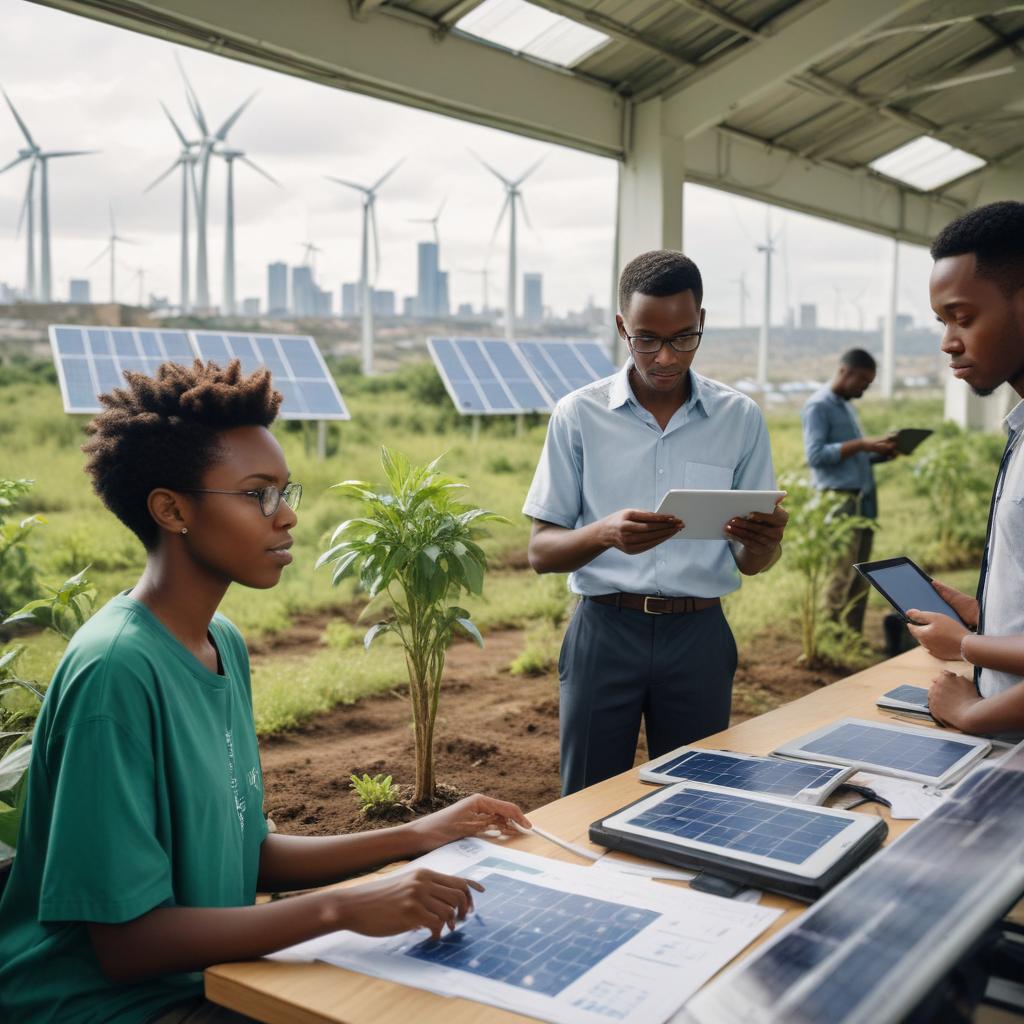While fintech often dominates headlines about Africa’s tech growth, there’s a quieter, equally powerful movement gaining momentum—climate innovation. And it’s not just a buzzword. It’s a necessary, urgent, and opportunity-rich revolution led by Africa’s youth, driven by local problems, and powered by forward-thinking solutions. In a compelling interview with The Guardian, Patrick Verkooijen, CEO of the Global Center on Adaptation, highlights Africa’s unique role in the global climate conversation. His vision is bold but grounded: Africa has the potential to become a global leader in climate-smart technology and resilience solutions, not just because of the challenges it faces, but because of the innovation already emerging from within. Cities like Nairobi, often called Silicon Savannah, are becoming hubs for green entrepreneurship. Young Africans are designing and building ventures that blend sustainability with technology—ranging from AI-powered agriculture systems and climate-resilient crop solutions to renewable energy platforms, carbon removal technologies, and digital tools for water management. This growing wave of climate entrepreneurship is not aid-driven or donor-dependent. It’s commercially viable, impact-oriented, and youth-led. African innovators are building real businesses that solve environmental challenges while generating jobs, revenue, and local ownership. In doing so, they’re redefining what sustainability means in an African context—not as a foreign concept, but as a lived, everyday necessity. What sets this movement apart is its holistic potential. Climate innovation intersects with so many other sectors—agriculture, energy, transport, health, and education—that it’s becoming a new growth engine for the continent. It’s not a siloed industry; it’s a foundational pillar of Africa’s long-term development and economic sovereignty. Why This Matters The intersection of digital disruption and green innovation could become the defining economic story of Africa’s next decade. With rising global interest in sustainable development and climate resilience, Africa is no longer just a beneficiary of global climate action—it’s becoming a source of scalable solutions for the world. To unlock this full potential, however, support is needed—not just in funding, but in policy reform, infrastructure, research, and education. Governments, the private sector, and international partners must recognize that the future of climate resilience will not be built in boardrooms in the West—it will be prototyped in labs, farms, and workshops across Africa. Africa is not waiting for handouts. It’s building. And if current trends are any indication, the continent’s climate innovators may soon lead not only in solving their own environmental challenges, but in helping the world adapt to a rapidly changing planet. Source: https://www.theguardian.com/global-development/article/2024/jun/18/patrick-verkooijen-nairobi-university-gca-climate-adaptation-africa-silicon-savannah-global-north-ai-green-jobs
Africa’s Fintech Boom: A Glimpse into the Future of Inclusive Growth
The Financial Times’ 2025 ranking of Africa’s Fastest-Growing Companies has once again highlighted the continent’s extraordinary entrepreneurial momentum—especially in the fintech sector. Leading the pack are Nigerian startups such as Omniretail, PalmPay, and Moniepoint. These companies have experienced meteoric growth, not just in terms of revenue, but in their ability to scale solutions that directly address some of Africa’s most entrenched financial challenges. Operating in environments characterized by inflation, limited infrastructure, and evolving regulations, these companies have built platforms that go beyond the typical offerings of mobile banking. They’re creating ecosystems—integrating digital payments, credit access, retail logistics, and even embedded finance—to serve millions of unbanked and underbanked individuals across Nigeria and beyond. What makes this surge so remarkable is not just the numbers, but the impact. These fintech platforms have opened doors for small businesses to access capital, for market women to transact seamlessly, and for entire communities to become part of a digital economy that was previously out of reach. This is not just about mobile apps or cashless transactions—it’s about economic empowerment. More importantly, these companies are part of a growing trend that repositions Africa as a creator of technology, not just a consumer. Instead of depending on imported solutions, African innovators are solving African problems—with a deep understanding of cultural context, infrastructure gaps, and user behavior. Their ability to do this, while attracting international venture capital and scaling rapidly, proves that African entrepreneurship is entering a new phase of global relevance. We’re not just witnessing the rise of a few tech companies—we’re seeing the birth of a new kind of economy. One that is decentralized, youth-led, and driven by the urgent need for practical solutions. From Lagos to Nairobi, fintech is becoming the foundation for wider innovation—fueling growth in e-commerce, agriculture, health, and education. As this momentum builds, the world should take notice. Africa’s fintech revolution is not a trend—it’s a transformation. And it’s only just beginning. Source: https://www.ft.com/content/1cae5285-ed13-47f4-ab24-81f58b535c07


